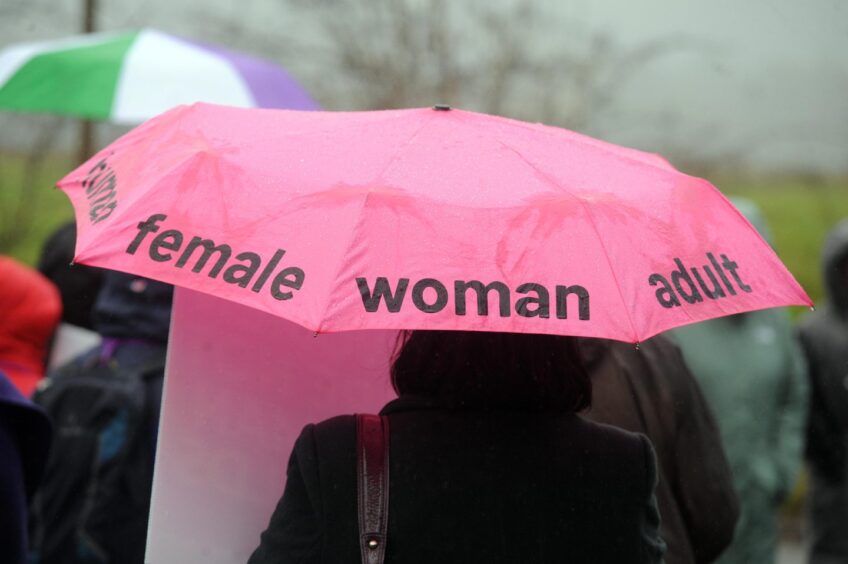The UK Government decision to block Holyrood’s Gender Recognition Reform Bill from gaining royal assent has been ruled lawful by the country’s highest court.
New legislation to simplify the process for transgender people to legally change their sex was passed by MSPs last year.
But the new rules were blocked by the UK Government, who said it could interfere with UK-wide equalities law.
The Bill was passed at Holyrood prior to Humza Yousaf taking over as first minister from Nicola Sturgeon.
Campaigners against the reforms warned the legislation could risk the safety of women and girls while supporters argued it would make the process easier, removing barriers such as seeking a doctor’s diagnosis of gender dysphoria.
The Court of Session has now ruled the use of the veto was lawful after an appeal was launched by the SNP government.
Lord Advocate Dorothy Bain, the country’s most senior law officer, told the court that Scottish secretary Alister Jack did not have “reasonable grounds” to block the Bill.
The court was told Mr Jack didn’t fully “acquaint himself” with the material he needed to consider before he invoked section 35 of the 1998 Scotland Act.
Section 35 gives the gives the Secretary of State for Scotland the power, in certain circumstances, to veto legislation enacted by the Scottish Parliament, even if it deals with a devolved matter.
It was the first time that the power has been used since the establishment of the Scottish Parliament in 1999.
But throwing the appeal out, Lady Haldane, who presided over the legal challenge, found Mr Jack had followed the correct procedures.
She said: “The challenge to the order pronounced under section 35 of the 1998 Act, laid on 17 January 2023, fails.
“In so concluding it is important to recognise the novelty and complexity of the arguments and the sophisticated manner in which those arguments were presented before me and from which I derived considerable assistance.
“I will accordingly sustain the pleas in law for the respondent, repel the pleas in law for the petitioners and dismiss the Petition.”
Writing on X, formerly Twitter, Scottish First Minister Humza Yousaf said: “Today’s judgment confirms beyond doubt that devolution is fundamentally flawed.
“The court has confirmed that legislation passed by a majority in Holyrood can be struck down by Westminster.”
He added, however, that ministers will “respect” the judgment.
Scottish Secretary Alister Jack said: “I welcome the court’s judgment, which upholds my decision to prevent the Scottish Government’s gender recognition legislation from becoming law.
Second Scottish Government court defeat
“I was clear that this legislation would have had adverse effects on the operation of the law as it applies to reserved matters, including on important Great Britain-wide equality protections.”
It is the second court loss this week for the Scottish Government after they appealed against a decision by the Scottish Information Commissioner ordering them to release material under Freedom of Information laws.
Mr Jack added: “Following this latest court defeat for the Scottish Government, their ministers need to stop wasting taxpayers’ money pursuing needless legal action and focus on the real issues which matter to people in Scotland – such as growing the economy and cutting waiting lists.”
Ruling means ‘more uncertainty’ for trans people
Colin Macfarlane, director of nations at LGBTQ+ charity Stonewall, said he was disappointed by the decision.
He added: “This unfortunately means more uncertainty for trans people in Scotland, who will now be waiting once again, to see whether they will be able to have their gender legally recognised through a process that is in line with leading nations like Ireland, Canada and New Zealand.
“Whatever happens next in discussions with the UK and Scottish governments on this matter, Stonewall will continue to press all administrations to make progress on LGBTQ+ rights in line with leading international practice.”


